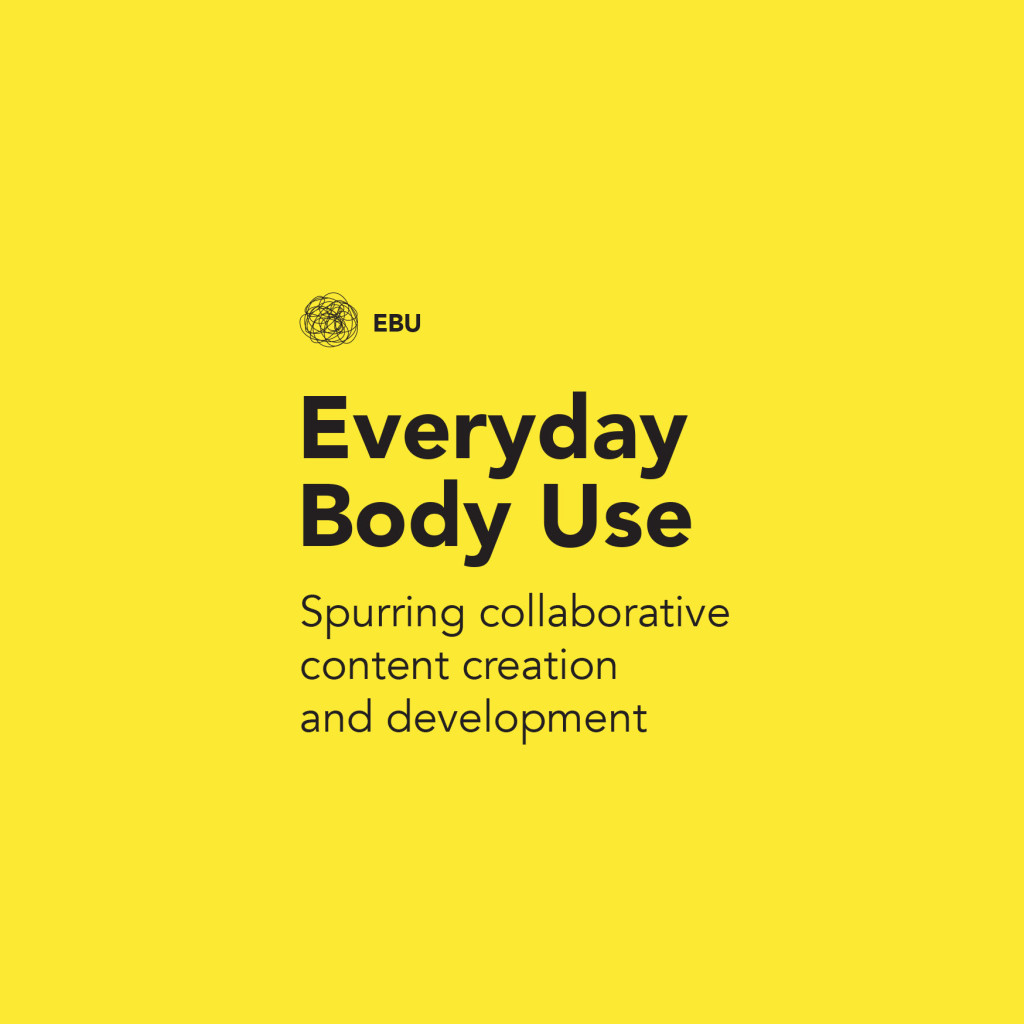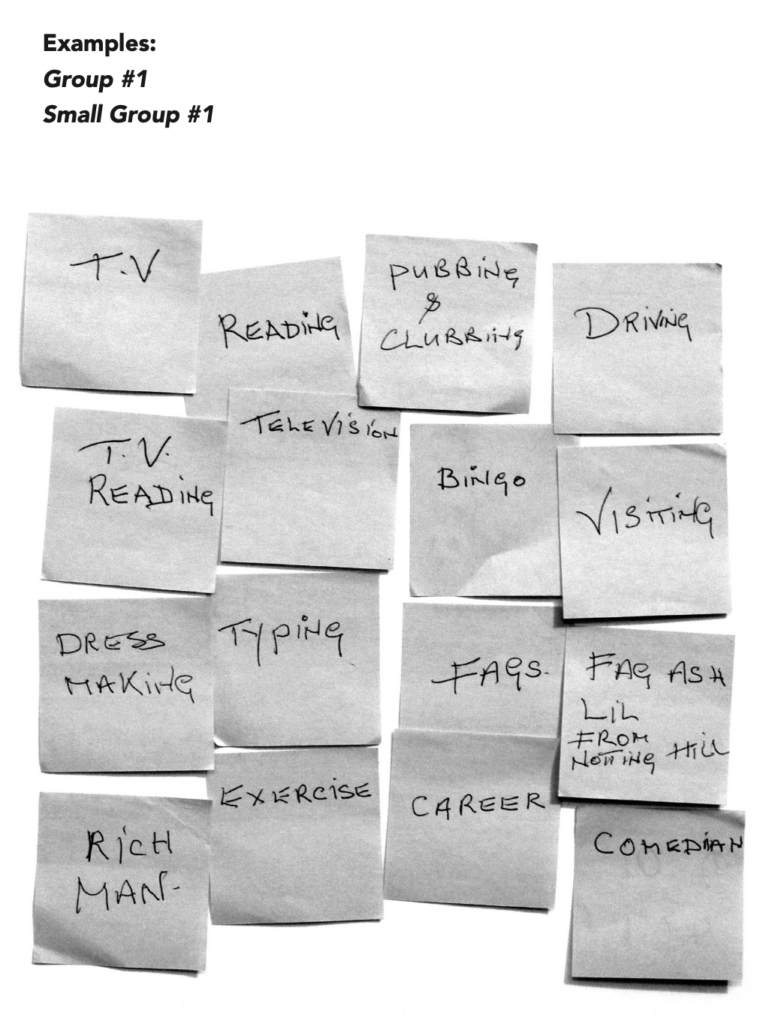
How
Ask participants to share ways they currently use or have previously used their bodies. Invite them to write down anything that comes to mind or seems relevant to their body.
Why
Everyday Body Use was designed after reflecting on Expert Knowledge activity. How do researchers decide what to focus on? What is important to the research participants and to the research? Who decides? Marx (1845) argued that the point of philosophy is not to only study society, but to change it. With this in mind, methods can act as forms of socio-political resistance, acknowledging and reconsidering power dynamics built into research design. By doing so, different social realities can be enacted and studied (Law, Ruppert and Savage, 2011). Collaborative research is one way researchers reconsider structures of power. Through collaborative research, participants shape work that is relevant to their social lives, as well as strengthen the research overall. This can be empowering for participants, as well as the researcher. Collaborative content creation furthermore disrupts the carefully crafted, strategic methodology of conventional sociology (Adkins and Lury 2009). It invites the researcher to become a facilitator, disrupting the traditional power dynamic of researcher-as-knowledge-producer. In doing so, the clean division of “research as social” or “research as epistemological,” as discussed by Mantoura and Potvin (2013), is destabilized when participants are “making analytical choices over what topics are important and what data need to be collected,” (Sinha and Back 2014: 6). Everyday Body Use invites participants to generate content that is relevant to their lives as bodies in motion. In letting go of research ‘control,’ the facilitator is forced to be a more active and open listener (see In-Between and Unplanned activity booklet). The content generated in Everyday Body Use should be used in other activities. In doing so, it can generate deeper engagement with the content of forthcoming workshops.
Examples

Reflections
Expert Knowledge, from which this activity emerged, created some hesitation among participants. Many felt uncomfortable with the word “expert.” Saying “everyday body use” felt much more approachable. Nobody hesitated in responding to the prompt. The activity could have easily extended beyond 1.5 hours. Through Everyday Body Use, expert, idiosyncratic movement knowledge emerged. The activity highlighted factors that shape a movement (such as one’s physical height, in the story of milking a goat instead of a cow) and those that lead to a movement’s practiced obsolescence (in the story of technology taking over hand labor).The activity also generated a wealth of shared movement knowledge, across generations and cultural backgrounds.
References
Adkins, L., and Lury, C., 2009. ‘Introduction to special issue ‘What is the empirical?’’, European Journal of Social Theory, 12, 5-20.
Law, J., Ruppert, E. and Savage, M., (2011), ‘The Double Social Life of Methods’, CRESC, Goldsmiths Research Online, 1-18.
Mantoura, P., and Potvin, L., (2013), ‘A realist-constructionist perspective on participatory research in health promotion,’ Health Promotion International, 28 (1), 61–72.
Marx, K., 1845. Theses on Feuerbach.
Sinha, S., and Back, L., (2013), ‘Making methods sociable: dialogue, ethics and authorship in qualitative research’, Qualitative Research, 14 (4), 473-487.